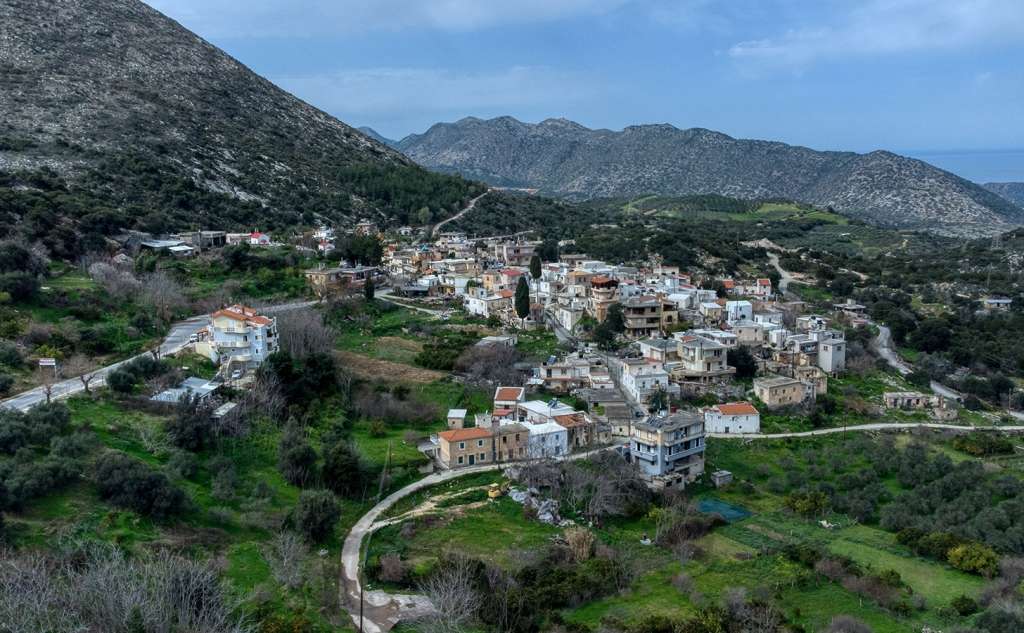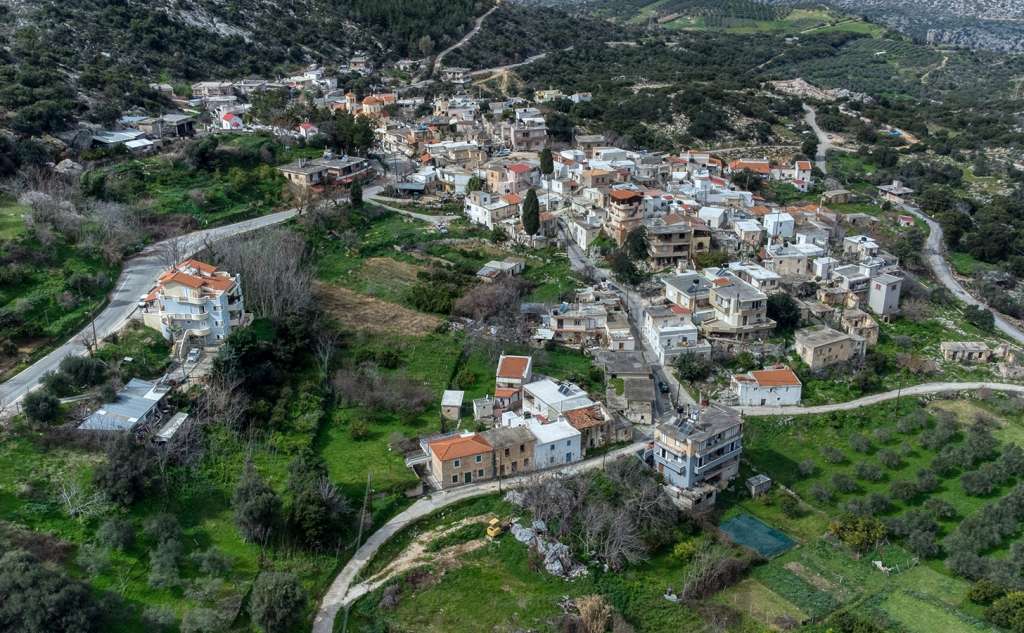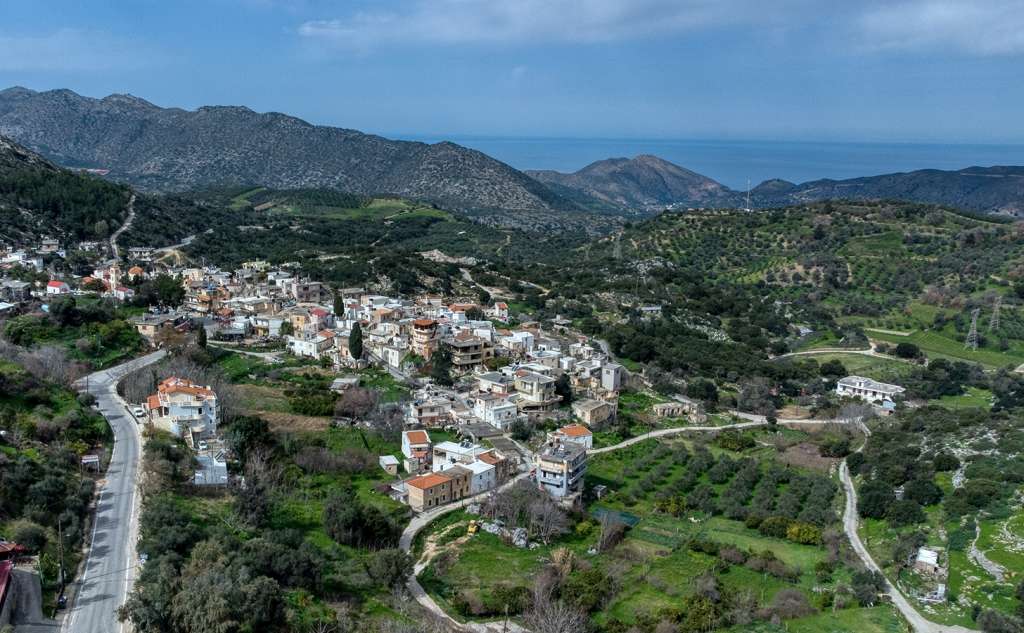






The mountain village of Marathos is located 14 km west of Gazi and 13 km from Tylissos. The village is built at an altitude of 300 meters and has about 330 permanent residents. In the northeast of the village, on Vasilikos hill, there is a spring, while in the location called Aspro Mashali, there is a natural habitat where wildlife abounds. Caves, Doxa and Arkalospilio are also impressive.
The village's name is pre-Greek and comes from the aromatic plant fennel (marathos in Greek). In 1583, it was mentioned by Kastrofylakas as Maratto, with 54 inhabitants in the province of Mylopotamos.
In the village, with its stone houses, the visitor can see the churches of Agios Charalambos (patron saint of the village), Agios Georgios and Agion Panton, while the church of Panagia is of remarkable beauty. Inside the village is the Monument of the Fallen from the Germans and the Monument of commander Elias Toulis, who was unjustly lost in July 1974 in Cyprus during the Greek military mission named "NIKI". Every year, a memorial service is held at the site of the monument.
In Marathos, visitors can also see the Giannis Klinakis Art Gallery, with sculptures donated to the village by the great artist shortly before he passed away. The collection of works has been housed in the space since 2009, while in the Art Gallery, there is also the Christos Kapralos section - Giannis Klinakis’ friend and teacher.
Every December, the Cultural Association of Marathos organises the Raisin Festival, where residents and visitors taste traditional delicacies with great success. At this point, we should mention that raisins are the name of the olive that ripens on the chondrolia tree and is almost ready for consumption without any other process. It has an excellent taste since, with the maturation, the bitterness disappears.
In Marathos, the Women's Association "The decorated cookie" stands out for its essential work. The association's name (founded in 2000) introduces visitors to the custom of the best men's cookies, given to the best man or the godfather. "Xombili means "ornament" in the Cretan dialect.